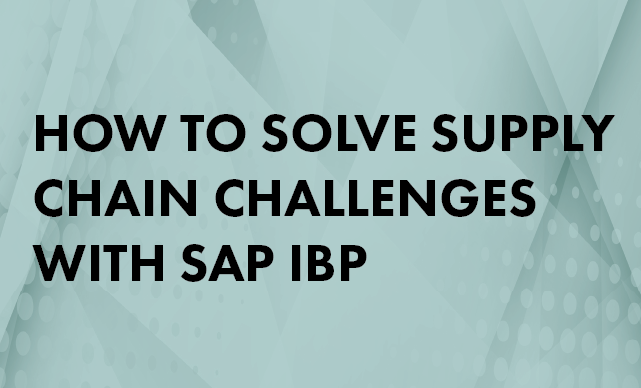Descartes Acquires MyCarrierPortal
Meet the Authors
Key Takeaways
-
Descartes Systems Group has acquired MyCarrierPortal (MCP) to enhance carrier onboarding and risk monitoring solutions, addressing ongoing issues of carrier fraud and compliance in the trucking industry.
-
The integration of MCP's platform with Descartes' existing tools will improve Know-Your-Carrier (KYC) capabilities, streamline onboarding processes, and ensure ongoing monitoring of carriers to mitigate risks and enhance supply chain performance.
-
SAPinsiders should prioritize seamless integration with Transportation Management Systems (TMS), diversify their carrier networks, and consider incentive programs to enhance compliance and performance among carriers.
SAP partner Descartes Systems Group (TSX:DSG) (Nasdaq:DSGX), a software and services provider that unites logistics-intensive businesses in commerce, announced that it has acquired Assure Assist, Inc., doing business as MyCarrierPortal (“MCP”), a leading provider of carrier onboarding and risk monitoring solutions for the trucking industry.
Based in the US, MCP’s solutions help freight brokers and shippers quickly set up carrier requirements through an onboarding platform that gathers information on carriers and screens them for suitability to deliver loads/shipments based on the broker’s risk and compliance criteria. Truck carriers are screened for legitimacy, insurance compliance, and an acceptable safety record. Carriers that are onboarded to the platform are monitored on an ongoing basis to help ensure continued compliance. If a carrier falls out of compliance, the customer is notified to take appropriate action with that carrier.
“Carrier fraud and cargo theft is an ongoing problem in the transportation industry. This acquisition is another investment to help enable improved Know-Your-Carrier (KYC) capabilities that are critical to improve supply chain performance and fraud reduction,” said Dan Cicerchi, General Manager of Transportation Management at Descartes. “We actively connect with hundreds of thousands of carriers and thousands of brokers and shippers. Many of these participants have expressed their desire for us to further extend our investments in fraud prevention. The combination of MCP and our Descartes MacroPoint FraudGuard tool presents a differentiated solution for our customers to efficiently onboard carriers while enhancing visibility and compliance, and reducing fraud risk.”
Explore related questions
The MCP and Descartes combination directly addresses several challenges that often arise during carrier onboarding:
Compliance and Regulatory Issues
- Document Verification: Carriers must provide accurate and up-to-date documentation, such as insurance certificates, operating authority, DOT (Department of Transportation) numbers, and safety records. Verifying these documents can be time-consuming and prone to errors.
- Safety Regulations: Ensuring that carriers comply with safety regulations, such as the Federal Motor Carrier Safety Administration (FMCSA) rules, is critical. Failing to verify safety ratings and compliance can lead to liability risks and safety concerns.
Insurance Verification
- Adequate Coverage: Ensuring that carriers have sufficient insurance coverage (e.g., liability, cargo insurance) for the types of goods they are transporting can be complex. Carriers might not always maintain the required level of coverage, leading to legal and financial exposure for logistics providers.
- Expired Insurance: Carriers may present insurance certificates that later expire, requiring continuous monitoring to avoid gaps in coverage.
Inconsistent Onboarding Processes
- Lack of Standardization: Many logistics providers or freight brokers lack a standardized carrier onboarding process. Inconsistencies in checking compliance, safety, and documentation can lead to operational inefficiencies and increased risk.
- Manual Processes: Traditional onboarding methods often involve manual data entry, paper forms, and individual checks, which can lead to errors, delays, and inefficiencies.
Data Integration and Technology Challenges
- Integration with TMS: Integrating carrier information with transportation management systems (TMS) and other digital platforms can be challenging. If systems don’t communicate well, critical data may be missed, leading to operational inefficiencies.
- Outdated Technology: Some carriers may not have advanced technological tools, such as GPS tracking or electronic data interchange (EDI) capabilities, which makes digital communication and tracking harder.
Capacity and Availability Issues
- Carrier Capacity: During the onboarding process, shippers or brokers may face difficulty finding carriers with the right capacity (e.g., trailer types, lanes) for their freight needs. Onboarding too many small carriers with limited availability can lead to service gaps during peak seasons.
- Driver Shortages: The trucking industry faces a persistent driver shortage, meaning that even after onboarding, some carriers may not have enough drivers to meet demand, leading to delays or cancellations.
Payment and Financial Concerns
- Creditworthiness: Onboarding carriers with poor financial stability can lead to service disruptions. Carriers may go out of business, leaving freight stranded or contracts unfulfilled.
- Disputes Over Payment Terms: Carriers and brokers may have disagreements over payment terms, fuel surcharges, and other financial aspects. Lengthy payment terms can deter smaller carriers from wanting to onboard.
Fraud and Risk of Unreliable Carriers
- Carrier Fraud: Some carriers may provide falsified information during onboarding, such as fake insurance certificates or non-existent DOT numbers. Without proper vetting, these carriers can cause significant losses, delays, or legal liabilities.
- Double Brokering: This fraudulent practice occurs when a carrier accepts a load but then reassigns it to another carrier without notifying the shipper or broker, leading to loss of control and tracking.
Slow Onboarding Time
- Time-Consuming Processes: The onboarding process can be lengthy, particularly when conducted manually. Delays in verifying credentials, safety records, and other documents can slow down the process, impacting overall logistics operations.
- Carrier Hesitation: Some carriers may be hesitant to go through lengthy onboarding processes, especially with smaller freight brokers or shippers, leading to reduced interest in working with certain companies.
Communication Gaps
- Lack of Transparency: Poor communication between carriers, brokers, and shippers during onboarding can result in misunderstandings or incomplete documentation.
- Language Barriers: In a diverse industry like trucking, language barriers between carriers and brokers or shippers may further complicate onboarding.
Ongoing Monitoring and Performance Tracking
- Lack of Continuous Monitoring: Onboarding isn’t a one-time task; it requires ongoing monitoring of a carrier’s performance, insurance status, and compliance. Failing to maintain proper oversight can result in legal and operational issues down the line.
- Performance Metrics: Establishing effective performance metrics (e.g., on-time delivery, damage rates) and ensuring that carriers meet them can be a challenge.
“We remain committed to adding solutions to our Global Logistics Network that help our customers manage the complete lifecycle of shipments in a secure and efficient manner,” said Edward J. Ryan, Descartes’ CEO. “MCP directly complements our investment in MacroPoint, and we’re excited to welcome the employees, customers and partners into the Descartes family.”
MCP is headquartered in the US. Descartes acquired MCP for up-front consideration of approximately $USD 24 million satisfied with cash on hand, plus potential performance-based consideration. The maximum amount payable under the all-cash performance-based earn-out is $USD 6 million, based on the combined business achieving revenue-based targets in each of the first two years post-acquisition. Any earn-out is expected to be paid in fiscal 2026 and fiscal 2027.
What this means for SAPinsiders
Integration with Transportation Management System (TMS) is critical: Ensure your carrier onboarding process is seamlessly integrated with your TMS to streamline workflows and reduce manual data entry.
Onboard a Diverse Set of Carriers: Diversify your carrier network by onboarding a mix of large carriers with established fleets and smaller carriers that can offer specialized services or increased flexibility. Ensure you onboard regional or niche carriers that are better suited for specific routes, lanes, or types of freight, thus improving service reliability in targeted areas.
Incentives for Quality Carriers: Consider developing incentive programs that reward carriers for compliance, performance, and loyalty. Building long-term relationships with reliable carriers reduces onboarding costs and strengthens operational stability.









